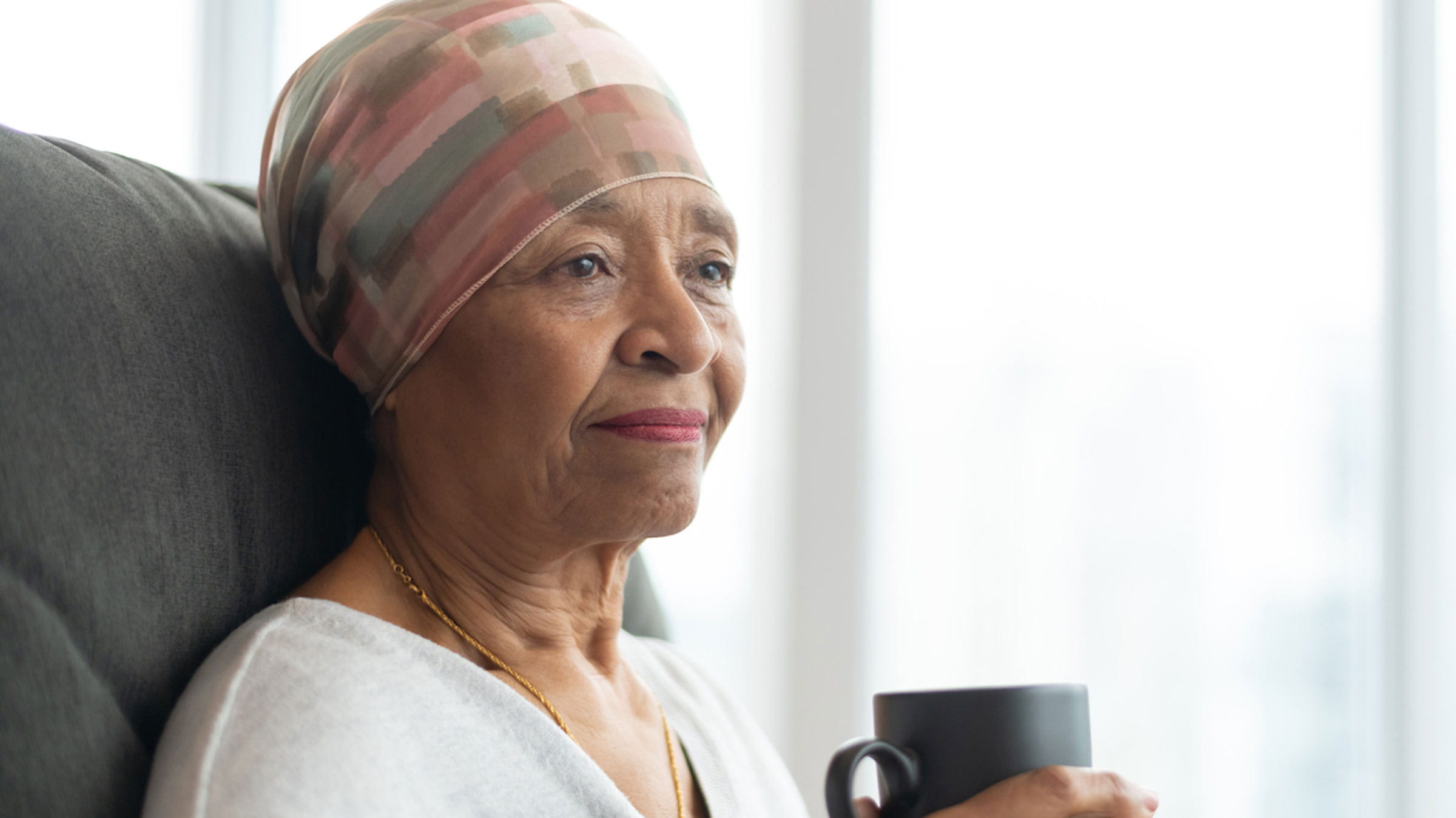
Editor’s note: As what we know about COVID-19 evolves, so could the information in this story. Find our most recent COVID-19 articles here and learn the latest in COVID-19 prevention at the Centers for Disease Control and Prevention. Some photos and videos on this site were filmed prior to the COVID-19 outbreak or may not reflect current physical distancing and/or masking guidelines.
OSUCCC – James experts are here to help patients and caregivers as they continue their cancer journeys amid the COVID-19 pandemic.
COVID-19 can cause serious health problems for anyone, but cancer patients are at particular risk for severe complications due to the effects of the diseases and treatments on their immune systems.
“During the COVID-19 pandemic, it’s critical that cancer patients and caregivers follow recommended guidelines for reducing the risk of infection — physical distancing in order to control their environments, washing hands with soap and water when possible, and alcohol-based hand sanitizer in other situations,” says the OSUCCC – James chief medical officer David Cohn, MD. “This is especially important for patients who have been treated with chemotherapy and/or radiation therapy, given their increased risk.”
Read on as Cohn explains how cancer and related therapies can affect patients’ immune systems, during and after treatment.
How cancer affects the immune system
“Our immune systems are components of our bodies that fight infections and other conditions. When somebody is immunocompromised, it means their immune systems do not work as effectively as they typically would. There are a lot of reasons that someone could have a reduced immune system, two of which are cancer and cancer treatment.”
The threat of COVID-19
“COVID-19 is a viral infection, which is usually recognized by our immune system as as being 'foreign' to our bodies. When our immune systems are compromised, we don’t have the ability to effectively fight off infections like COVID-19.”
Which cancer patients are at highest risk?
“Our immune cells are made within the bone marrow, so certain cancers that arise from the bone marrow — typical blood cancers like leukemia and multiple myeloma — can force out normal immune cells, which makes patients’ immune systems function less effectively. More common solid tumors like breast, lung and colorectal cancers, don’t start in the bone marrow, so they don’t quite cause the level of immunocompromise as blood cancers, but all cancers can affect the immune system.”
How long are cancer patients immunocompromised?
“The type of cancer a patient has, as well as the treatment — chemotherapy or radiation therapy — can substantially affect the duration of the impact on a patient’s immune system. For example, if somebody has had a bone marrow transplantation because of blood cancer, their immune system is severely impacted by the chemotherapy and radiation therapy they received in order to eliminate the cancer. They are then repopulated with transplanted cells. When that happens, the length of time that the immune system is impacted can be prolonged.
“Also, an individual patient’s immune system can be more impacted than another patient’s even though they have the same cancer and received the same treatment. I would encourage everybody to discuss their individual situations with their oncologists.”
Getting back to (the new) normal
“The good news is, after cancer treatment, in general, immune systems recover, so patients will eventually be able to get back into the community and do the things they normally do. They should still practice physical distancing and proper handwashing and hand sanitizing during the pandemic, but once a patient’s immune system is back to normal, their risk of contracting COVID-19 and experiencing complications from COVID-19 is much lower.”

Get comprehensive information on COVID-19 and cancer
Get important information and tips on nutrition, exercise and risk reduction — from OSUCCC – James experts.
Get information now



